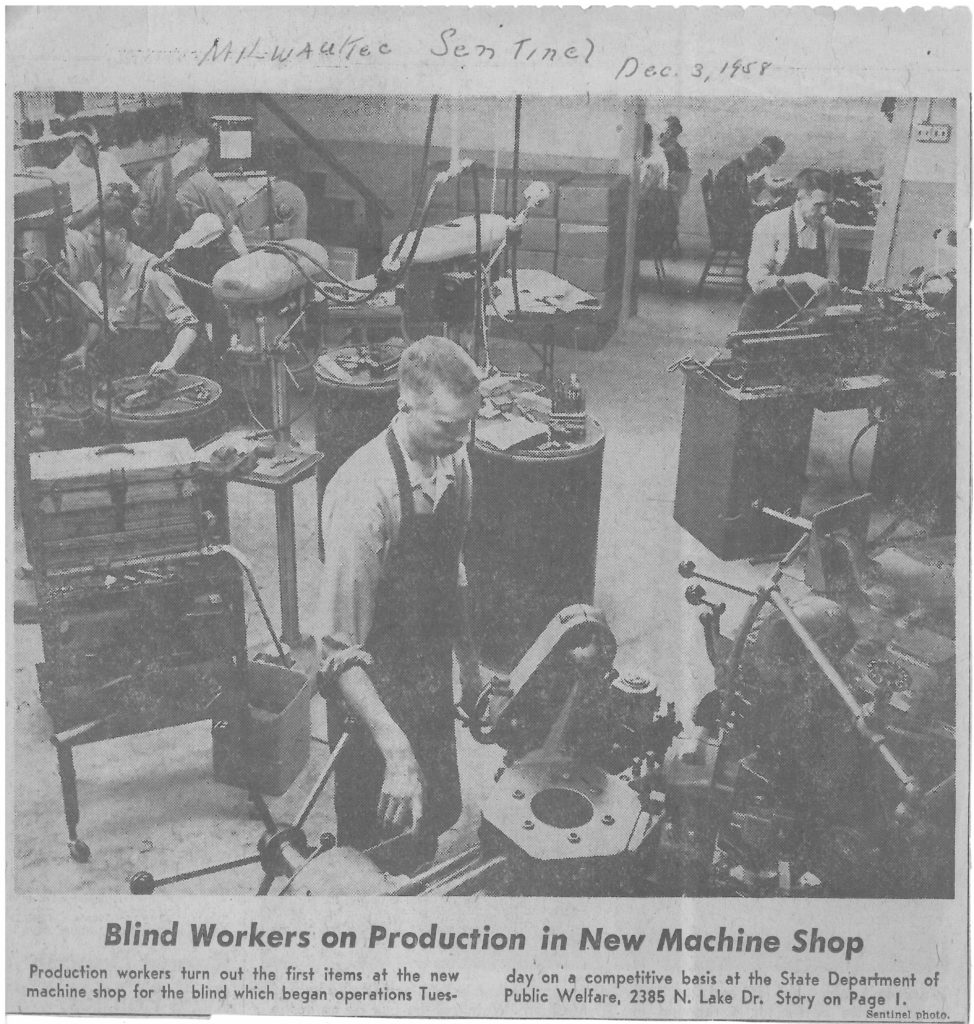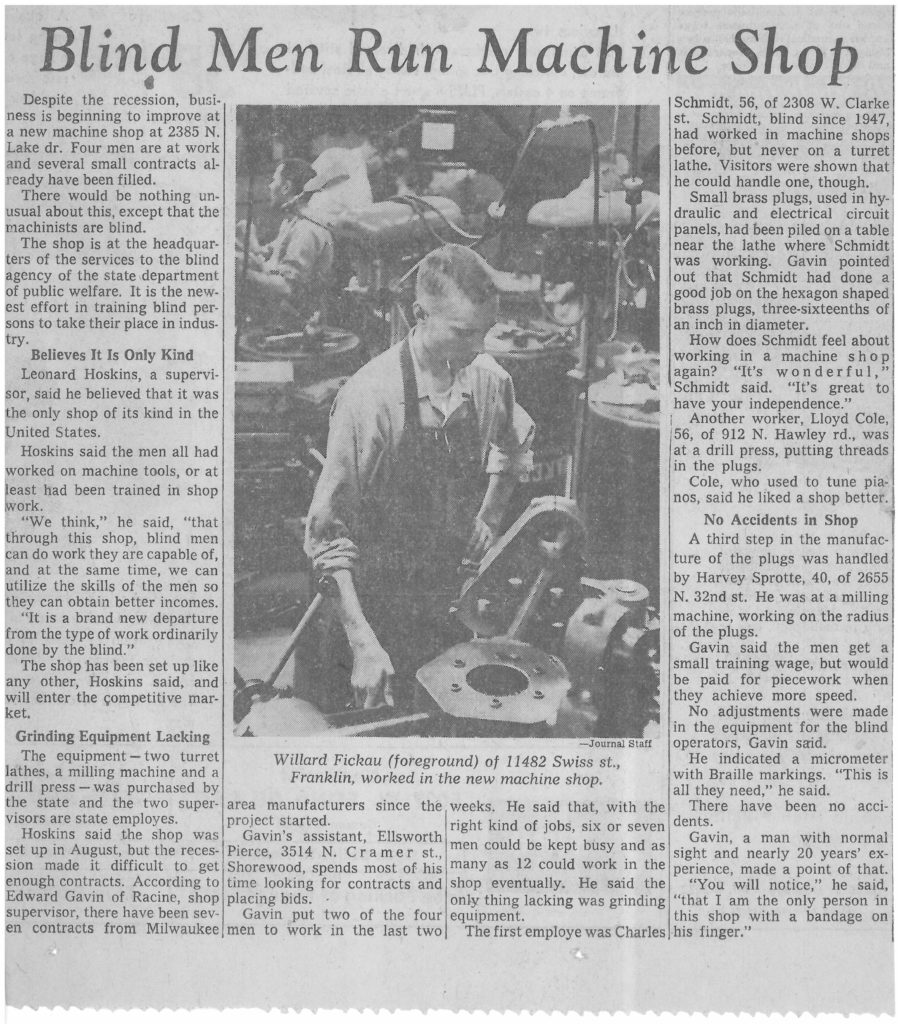Times have changed, but many of the aspects of our Machine Shop haven’t.
Article from the Milwaukee Sentinel, December 3, 1958. (Accessible text below.)


Despite the recession, business is beginning to improve at a new machine shop at 2385 N. Lake Dr. Four men are at work and several small contracts already have been filled.
There would be nothing unusual about his, except that the machinists are blind.
The shop is at the headquarters of the services to the blind agency of the state department of public welfare. It is the newest effort in training blind persons to take their place in industry.
Leonard Hoskins, a supervisor, said he believed that it was the only shop of its kind in the United States.
Hoskins said the men all had worked on machine tools, or at least had been trained in shop work.
“We think,” he said, “that through this shop, blind men can do work they are capable of, and at the same time, we can utilize skills of the men so they can obtain better incomes.”
“It is a brand new departure from the type of work ordinarily done by the blind.”
The shop has been set up like any other, Hoskins said, and will enter the competitive market.
The equipment – two turret lathers, a milling machine and a drill press – was purchased by the state and the two supervisors are state employees.
Hoskins said the shop was set up in August, but the recession made it difficult to get enough contracts. According to Edward Gavin of Racine, shop supervisor, there have been seven contracts from Milwaukee are manufacturers since the project started.
Gavin’s assistant, Ellsworth Pierce, 3514 N. Cramer St., Shorewood, spends most of his time looking for contracts and placing bids.
Gavin put two of the four men to work in the last two weeks. He sai that, with the right kind of jobs, six or seven men could be kept busy and as many as 12 could work in the shop eventually. He said the only thing lacking was grinding equipment.
The first employee was Charles Schmidt, 56, of 2308 W. Clarke St. Schmidt, blind since 1947, had worked in machine shops before, but never on a turret lathe. Visitors were shown that he could handle one, though.
Small brass plugs, used in hydraulic and electrical circuit panels, had been piled on a table near the lather where Schmidt had done a good job on the hexagon shaped brass plugs, three-sixteenths of an inch in diameter.
How does Schmidt feel about working in a machine shop again? “It’s wonderful,” Schmidt said. “It’s great to have your independence.”
Another worker, Lloyd Cole, 56, of 912 N. Hawley Road, was at a drill press, putting threads in the plugs.
Cole, who used to tune pianos, said he liked a shop better.
A third step in the manufacture of the plugs was handled by Harvey Sprotte, 40 of 2655 N. 32nd St. He was at a milling machine, working on the radius of the plugs.
Gavin said the men get a small training wage, but would be paid for piecework when they achieve more speed.
No adjustments were made in the equipment for the blind operators, Gavin said.
He indicated a micrometer with Braille markings. “This is all they need,” he said.
There have been no accidents.
Gavin, a man with normal sight and nearly 20 years’ experience, made a point of that.
“You will notice,” he said, “that I am the only person in this shop with a bandage on his finger.”